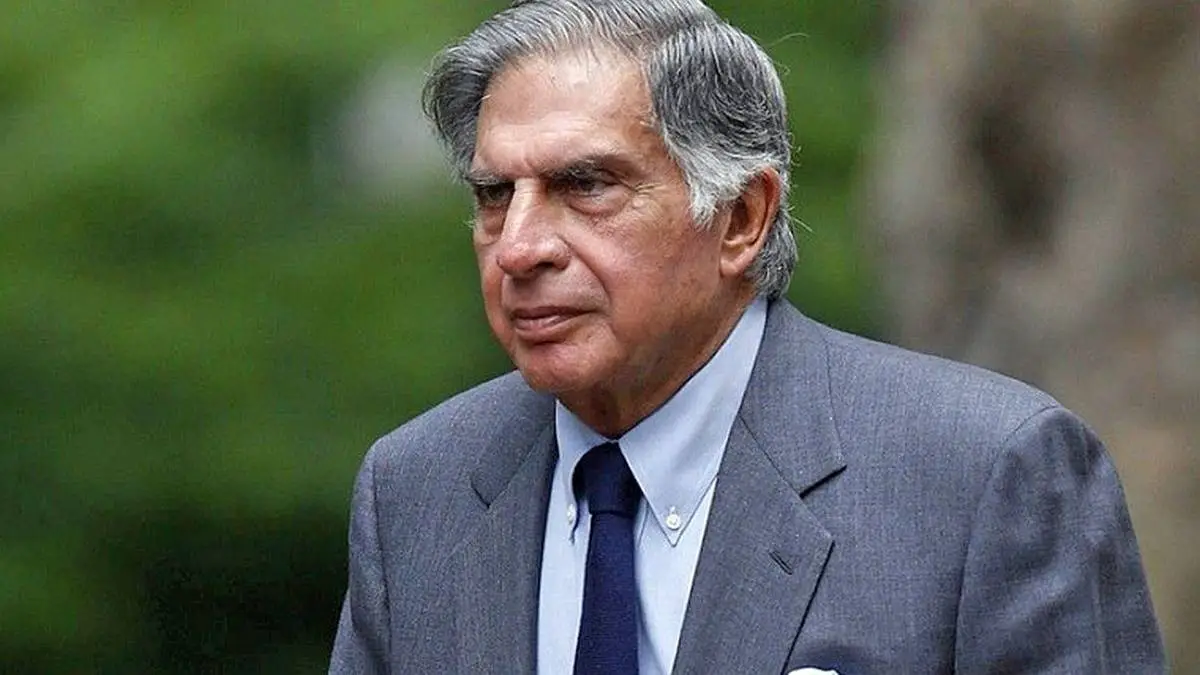Ratan Tata Net Worth: A Journey of Philanthropy and Business Excellence – Ratan Tata, one of India’s most revered industrialists, has left an indelible mark on both the business world and society at large. As the former chairman of Tata Sons, he transformed the Tata Group into a global conglomerate while adhering to the principles of ethical business practices and philanthropy. In this blog post, we delve into the various dimensions of Ratan Tata’s legacy, focusing on his net worth, philanthropic commitments, leadership style, and overall impact on the Indian industry.
Ratan Tata Net Worth
As of 2024, Ratan Tata’s estimated net worth is approximately ₹3,800 crore, which translates to around USD 456 million. This wealth primarily derives from his holdings in Tata Sons, the holding company for the Tata Group. However, unlike many wealthy individuals who accumulate personal fortunes through direct stakes in their companies, a significant portion of Ratan Tata’s wealth is tied up in charitable trusts. The Tata Trusts hold approximately 66% of Tata Sons and allocate profits to various philanthropic initiatives throughout India.
Comparison of Net Worth Over the Past Five Years
- 2020: ₹3,000 crore
- 2021: ₹3,200 crore
- 2022: ₹3,500 crore
- 2023: ₹3,700 crore
- 2024: ₹3,800 crore
This gradual increase reflects not only the growth of Tata Group but also Ratan Tata’s strategic investments and philanthropic efforts. His financial standing is a testament to his ability to navigate the complexities of modern business while remaining committed to social good.
Philanthropic Commitment
Ratan Tata’s approach to wealth management emphasizes philanthropy as a core principle. The majority of the profits from Tata Sons are allocated to charitable endeavors through the Tata Trusts. Since 2020, he has donated over $1.2 billion (approximately ₹9,000 crores) to various causes including education, healthcare, and rural development. His philanthropic philosophy aligns with the founding principles of the Tata Group, which prioritize social responsibility alongside business success.
Key Areas of Philanthropic Focus
- Education: Ratan Tata has been instrumental in funding educational initiatives that aim to improve access to quality education across India. The establishment of numerous schools and colleges underpinned by scholarships and grants has enabled countless students to pursue higher education.
- Healthcare: Significant investments have been made in healthcare infrastructure, particularly in underserved regions. The establishment of hospitals and funding for medical research initiatives demonstrate his commitment to improving healthcare access for all.
- Rural Development: Projects aimed at enhancing infrastructure and livelihoods in rural areas have been a priority. These initiatives focus on providing clean drinking water and supporting sustainable agricultural practices that benefit small farmers.
Suggested read: Else Review (2024): A Unique Mix of Horror and Romance
Leadership and Transformation of Tata Group
Under Ratan Tata’s leadership from 1991 to 2012, the Tata Group expanded significantly beyond its traditional industries like steel and automobiles into sectors such as IT services, consumer goods, telecommunications, and more. Notable acquisitions such as Jaguar Land Rover and Corus Steel played a crucial role in positioning the company as a global powerhouse.
Ethical Business Practices
A defining feature of Ratan Tata’s leadership has been his steadfast dedication to ethical business practices. He emphasized integrity and transparency throughout his tenure, setting new standards for corporate governance in India. This focus has earned the Tata Group a reputation for reliability both domestically and internationally.
The emphasis on ethical practices is not merely a corporate strategy; it reflects Ratan Tata’s belief that businesses should operate with a sense of responsibility towards society. This philosophy has influenced many other companies in India to adopt similar practices.
Investments and Assets
Ratan Tata’s investment portfolio showcases his interest in innovation and support for young entrepreneurs. He has made investments in more than 30 startups, including well-known companies such as Ola Electric and Paytm. These investments highlight his commitment to nurturing new ideas that can drive economic growth in India.
Real Estate Holdings
In addition to his investments in startups, Ratan Tata owns several properties primarily located in Mumbai. His most notable residence is a sea-facing bungalow in Colaba valued at over ₹150 crores. This property reflects his success but also highlights his preference for a straightforward yet refined lifestyle devoid of ostentation.
Legacy and Impact on Indian Industry
Ratan Tata’s influence extends beyond business; he has inspired countless entrepreneurs with his vision of integrating social good into business practices. His leadership has transformed the Tata Group into a globally recognized name while maintaining a commitment to ethical standards.
Contributions to National Development
Through initiatives led by the Tata Trusts, Ratan Tata has made profound contributions to India’s development landscape. His work in education and healthcare has improved millions of lives across the country. The legacy he leaves behind is not just measured in financial terms but also the positive societal impacts achieved through his philanthropic efforts.
The establishment of institutes such as the Tata Institute of Social Sciences underscores his commitment to social development through education and research.
Conclusion – Ratan Tata Net worth
Ratan Tata’s legacy is characterized by a unique blend of business success and deep-rooted social responsibility. His journey reflects a commitment to ethical practices and philanthropy that continues to inspire future generations. Rather than focusing solely on personal wealth accumulation, he has channeled his resources toward making a meaningful impact on society.
As he steps back from public life, Ratan Tata’s influence will undoubtedly continue to resonate within India’s business community and beyond. His belief that businesses should serve not just their shareholders but also their communities will remain a guiding principle for aspiring entrepreneurs everywhere.
In an era where corporate greed often overshadows social responsibility, Ratan Tata stands out as a beacon of hope and a reminder that true success lies not just in financial gains as well as in creating a positive impact on people’s lives.








